How Donald Trump’s Ukrainian tirade could affect Australia’s relations with the USA
Donald Trump’s Ukrainian tirade has Australia puzzling how it could affect our relations with the USA.
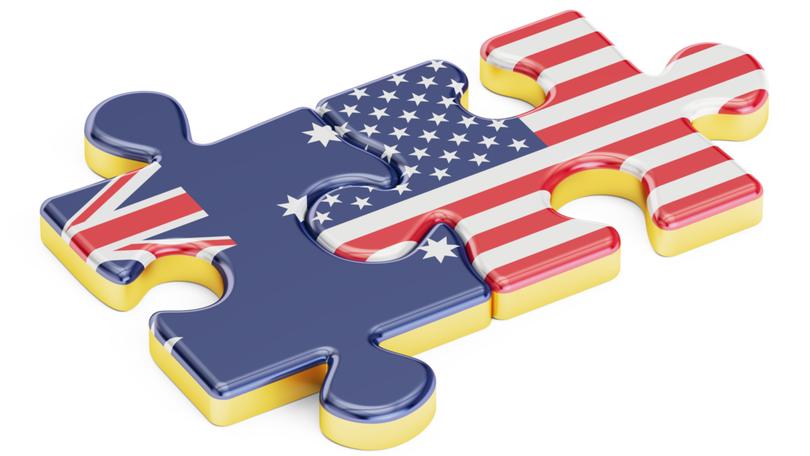
Donald Trump’s complete upheaval of the United States’ position on Ukraine will be “profound and far-reaching” and should set off alarm bells among all Washington’s allies, security and defence experts say.
The President has taken a sledgehammer to America’s long-standing position on the conflict, blocking Kyiv from “peace talks” with Moscow, repeating Russian propaganda, and on Thursday calling Ukrainian President Volodymyr Zelensky a “dictator” who had conned Joe Biden’s Washington into spending “$250 billion to go into a war that couldn’t be won”.
Four different experts who spoke to The Nightly agreed that the President’s rhetoric was the clearest sign yet that when it comes to foreign policy in the Trump era, there were simply no guarantees, even with the US’ closest partners – with one analyst predicting that could result in AUKUS being used “as a bargaining chip”.
Sign up to The Nightly's newsletters.
Get the first look at the digital newspaper, curated daily stories and breaking headlines delivered to your inbox.
By continuing you agree to our Terms and Privacy Policy.They said while Mr Trump’s rhetoric on Ukraine was not altogether surprising, because it continues along the “America first” and transactionalist trajectory he’d set during his first term and during the campaign, but the President’s blatant cosying up with Russian President Vladimir Putin marked a “radically different” approach which would be as ruthless as it could be devastating.
At the root of his approach, some said, is a belief the US has been “exploited by its allies”. Even though the President doesn’t currently view Australia as a leech, experts say, the President’s “material” nature means there is no room for “sentimentality or loyalty”.
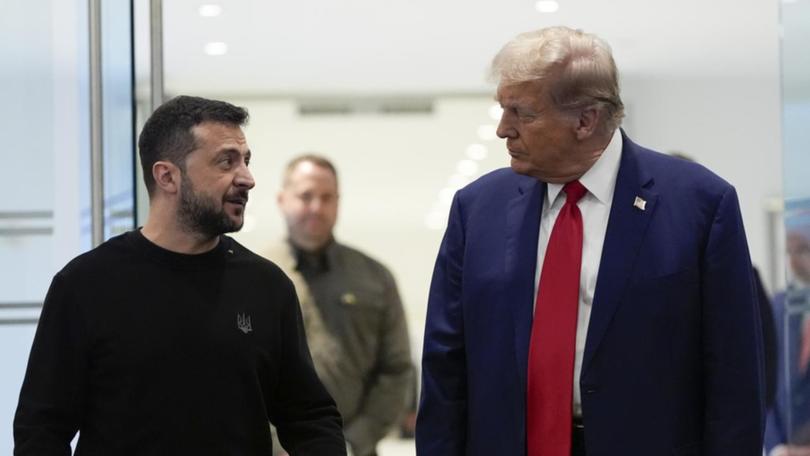
Sam Roggeveen, director of the Lowy Institute’s International Security Program, and Peter Dean, the director of foreign policy and defence at the United States Studies Centre, both said the view wasn’t a new idea, but a more explicit manifestation of a growing belief in the US that allies and partners should pick up “slack”.
“There’s been very few things Trump has been consistent about in his political career . . . But since the 1980s he’s been arguing that America is being exploited by allies, and that the US is being played for a sucker by allies, and the US needs to do less and make them do more to provide for their own security,” Mr Roggeveen said.
Professor Dean said Mr Trump was making it clear how transactional he was — but cautioned against reacting to everything the President says or does because he is playing a “game of theatre”.
“Trump has said he doesn’t mind if Russia attacks NATO countries who don’t pay their fair share of debts. That was a clear warning, because Trump is transactional,” Professor Dean said.
“If you pay your fair share, if you’re contributing and you’re not free-riding of the US and not ‘making a sucker of Uncle Sam’, then he’s willing to deal with you.”
John Blaxland, director of the ANU North America Liaison Office, said Mr Trump’s posturing on Ukraine shouldn’t provoke panic, but there was “definitely cause to worry”.
“We’re three weeks into this new presidency that is still finding its way and asserting itself. The equilibrium is not yet reached, the dust has not yet settled on what this looks like and what this means,” he said.
“Yes, it’s transactional, yes, its mercantilist, but that’s what the world looks like nowadays. To be fair it predates Trump, it’s just become more acute under Trump.”
With that in mind, Mr Roggeveen from the Lowy Institute said Australia should be alive to the possibility that AUKUS could become a bargaining chip.
“Considering how he behaved towards Canada — what more friendly, benign, pro-America partner can you think of than Canada? — we have to be open to the possibility that that kind of hard bargaining, that very unsentimental America-first bargaining, that that enters our relationship with America as well,” he said.
“And if Trump is looking for leverage, then why not?”
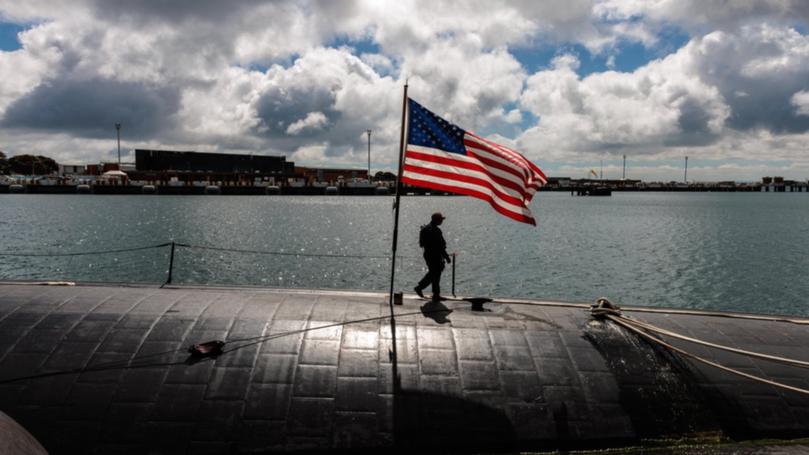
Mr Roggeveen said while Australia had fewer points of friction than the US did with Canada, especially considering the trade surplus, there was no assurances that the President wouldn’t one day be triggered by something.
“At some point, Trump could be looking for points of leverage, and say ‘do X, otherwise the submarine agreement is under threat’,” he said.
“The other risk for the AUKUS submarine project is whether at some point, Trump is presented with a piece of paper or a briefing which says, ‘in order to get some submarines to Australia, we’re going to have to have fewer submarines.’ And if it gets put to Trump in those terms, then I think there is a real risk that he’ll say, ‘no sorry, we can’t do that’.
“There’s no guarantees with him, and there’s no room for sentimentality or a sense of loyalty.”
Professor Dean said AUKUS ticks “all Trump’s boxes” — a deal that the US is happy with, Australia pays its own way, and China is the focus.
Pointing to Defence Minister Richard Marles’ meeting in Washington with Defence Secretary Pete Hegseth earlier this month, Professor Dean said that meeting was “all part of a strategy”.
“It’s all part of a strategy — reassure AUKUS which gives Hegseth some legitimacy to then head off to Europe to bash them around the head while saying ‘I’m not against allies, look at Australia — I’m just against free riding allies’,” Professor Dean said.
But, he said that came with a caveat.
“The risk is how material this President is — he could turn around in a week’s time and this could all change,” he said.
Michael Shoebridge, director of Strategic Analysis Australia, said even if allies and partners did contribute — like Australia did with AUKUS — that didn’t mean there were any guarantees.
He said it was crucial now more than ever that Australia looked further afield than just the US for defence.
“We should be growing our partnerships with countries like Japan and South Korea,” he said.
“That’s just a logical course of action given the uncertainties of America that we’re seeing become manifest and obvious.”
Professor Blaxland, meanwhile, said Australia was “more important than ever” to the US, but cautioned “no one knows what’s around the corner”.
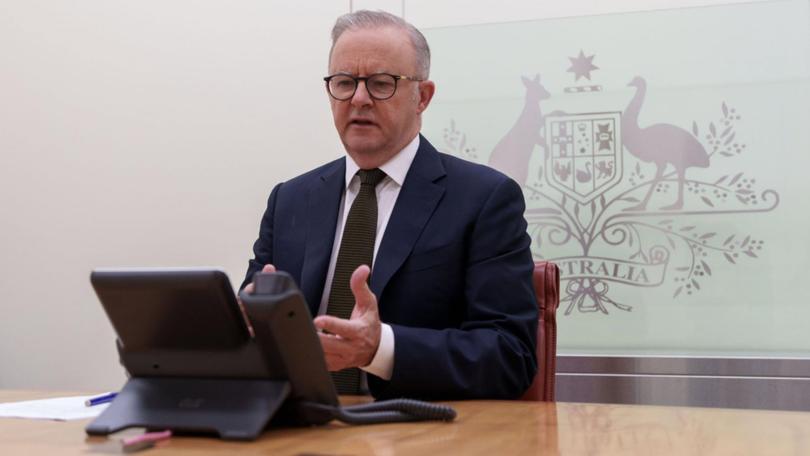
“There is a recognition that there is an enduring utility for the US of our real estate, and with that comes a recognition from the US they’ve done this deal with submarines — if they pull out, it would have a deeply corrosive effect on America’s ability to exercise preferences in Australia’s territory,” he said.
“(But) We’re all just in the middle of this incredible moving, living headline that is all consuming and leaving us all flummoxed,” he said.
“This is an unprecedented inflection point of history where the US is taking a different course that is considerably beyond what any pundits have anticipated”.
Mr Shoebridge also said given Mr Trump’s actions regarding Mr Zelensky, there was a chance he might change tack on China.
“There is a strong possibility that Trump will have a leader to leader meeting with Xi, and he may take a different position to those of his key administration officials, as he has already done with Ukraine.
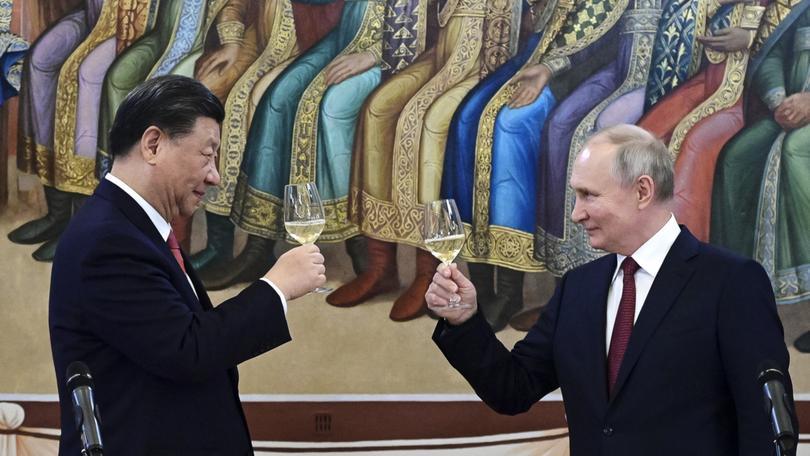
“Anyone enjoying watching Trump denigrate his European partners and allies and thinking it will be an entirely different situation with the US’ partners and allies in the Indo-Pacific is probably making a mistake.”
Professor Dean, meanwhile, suggested part of Mr Trump’s plan in trying to restore Mr Putin’s legitimacy on the world stage could be to use it as leverage to prevent the relationship between Moscow and Beijing from deepening.
“I’m convinced the grand vision of all of this is ‘I want Europeans to pay for European security, I want to get out of doing as much of that European security as I can because I think it’s a bad deal, and I also want us to marshal US resources and energy, military and others, to compete against China,” he said

